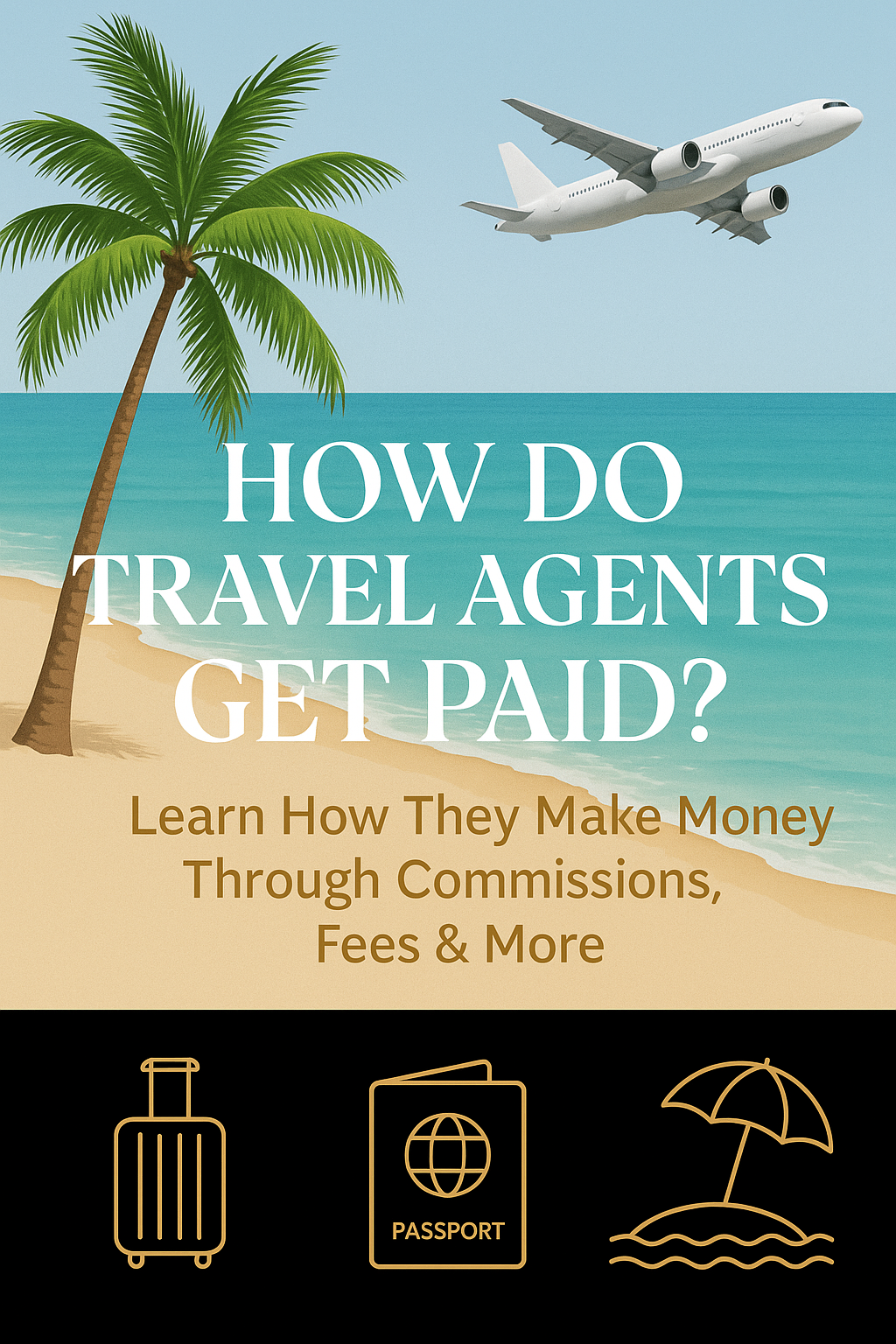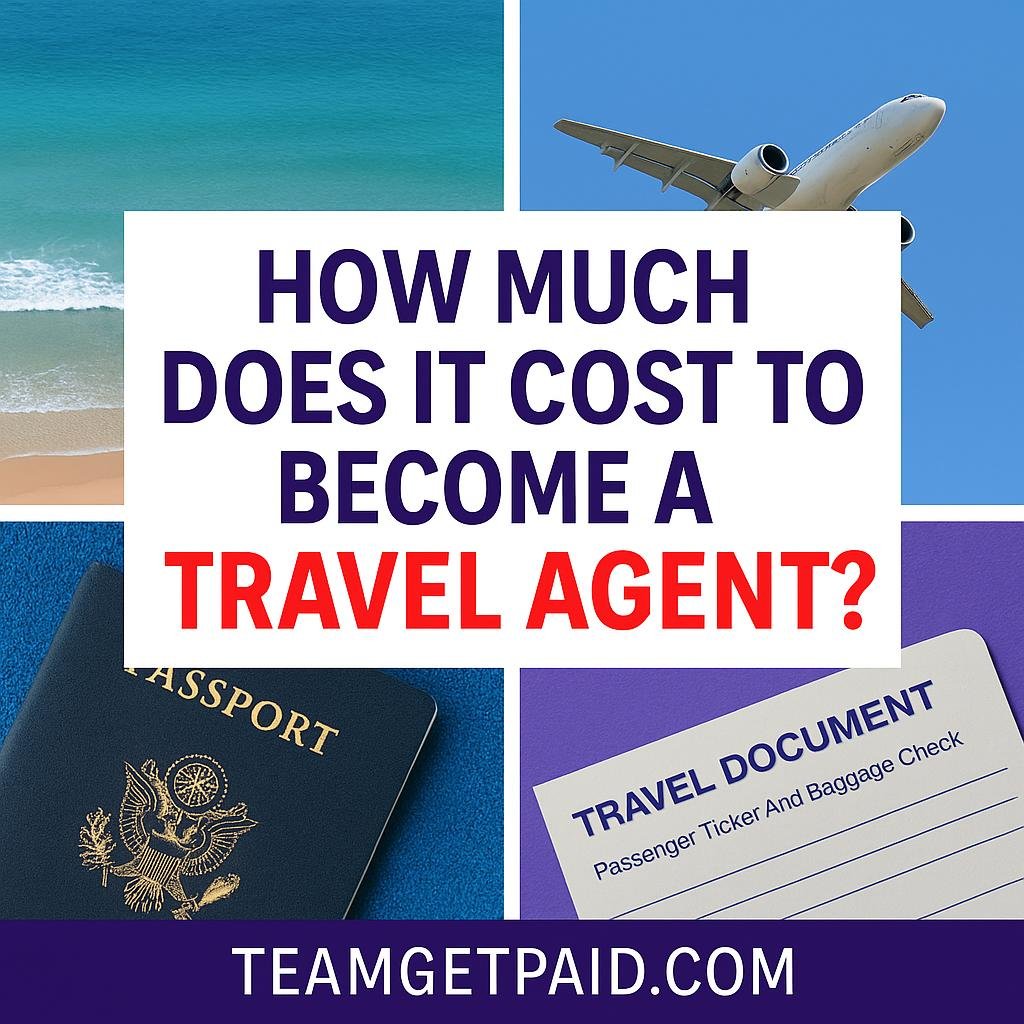How Do Travel Agents Get Paid? Understanding Commissions, Fees, and Income Streams
If you’ve ever wondered how do travel agents get paid, you’re not alone. While it might seem like using a travel agent adds extra cost, that’s often not the case. In fact, many travel agents make their money behind the scenes through commissions, planning fees, or special agreements with travel suppliers.
In this guide, we’ll break down exactly how travel agents make money, how you can earn in this career, and answer common questions like: do travel agents get paid to travel and how do you get paid being a travel agent?
How Do Travel Agents Make Money?
1. Commissions from Travel Suppliers
The most common way travel agents get paid is through commissions. When a travel agent books a hotel, cruise, flight, or vacation package, the supplier (like the hotel chain or cruise line) pays them a percentage of the total sale.
Typical commission rates:
-
Hotels: 10–15%
-
Cruises: 12–16%
-
Tour packages: 10–12%
-
Car rentals: 5–10%
-
Flights: Often low or none (some international fares offer 3–5%)
So, where do travel agents make their money? Mostly from suppliers who reward them for driving bookings. These commissions are paid after the trip is completed, not when it’s booked.
2. Service Fees and Planning Charges
Many modern agents charge service fees to make up for low-commission or no-commission bookings. This includes:
-
Flight booking fees (e.g., $25–$50 per ticket)
-
Custom itinerary design fees
-
Group planning or honeymoon consultation charges
These fees ensure the agent gets paid even if suppliers don’t offer commissions. It’s also one of the best answers to how do you get paid being a travel agent if you’re working independently.
3. Salaries and Bonuses
If you work for a corporate agency or as an in-house employee, you might receive a base salary plus performance bonuses. This offers income stability but may mean you share commission revenue with the agency.
4. Markups on Net Rates
Independent agents or agencies sometimes mark up net travel costs when suppliers give discounted rates. For example:
-
Net hotel rate: $900
-
Agent markup: $100
-
Client pays: $1,000
This allows you to get paid to be a travel agent through pricing control, especially for custom trips or group packages.
Do Travel Agents Get Paid to Travel?
In some cases, yes! But it’s not quite as glamorous as it sounds.
Travel agents don’t typically get paid just to take vacations. However, they do often receive:
-
Discounted trips or FAM (familiarization) tours from suppliers
-
Free stays at resorts or on cruise lines (in exchange for learning and promoting them)
-
Bonus commissions or perks for selling specific travel products
So while they may not earn income while traveling, these benefits reduce costs and help agents sell better by experiencing destinations firsthand. That’s one way how to get paid to be a travel agent—by turning travel into research and relationship-building.
Additional Ways Travel Agents Make Money
✈️ Airfare Fees and Markups
Since most airlines don’t pay commissions on domestic flights, agents charge:
-
Service fees per ticket
-
Markups on net consolidator fares
This fills in the gap and ensures agents are compensated for the time spent booking and troubleshooting flights.
🧳 Travel Insurance Sales
Agents can earn 15–20% commissions by offering travel insurance to clients. This is a value-added service and a smart income stream, especially on higher-end trips.
🏝️ Vacation Packages & Tours
Selling bundled packages increases commissions because the total value of the booking is higher. Many tour operators offer additional bonuses for agents who specialize in certain destinations or group bookings.
🧭 Custom Travel Planning
Clients often pay $100–$300 or more for personalized planning—especially for luxury, adventure, or multi-stop trips. This is another key method in how travel agents get paid when commission alone isn’t enough.
Travel Agent Payment Models
| Income Source | Description | Avg. Earnings |
|---|---|---|
| Commissions | Paid by hotels, cruises, and suppliers post-travel | 10–16% typical |
| Service Fees | Charged directly to clients for planning services | $25–$300+ per client |
| Salary/Bonuses | For employed agents with performance goals | $30k–$60k+ annually |
| Markups | Adding profit on net rates from vendors | Varies |
| Incentives/Perks | Supplier bonuses, FAM trips, upgrades | Non-cash benefits |
How Do You Get Paid Being a Travel Agent?
To receive income, travel agents:
-
Track all bookings through agency systems or host agency portals
-
Invoice suppliers or confirm sales when required
-
Receive payment after the trip is completed—via direct deposit, checks, or agency transfers
-
Collect service fees directly from clients at time of consultation or booking
Independent agents often use tools like PayPal, Stripe, or business bank transfers. Those working under host agencies typically receive a monthly commission payout based on sales minus splits.
Final Thoughts: How to Get Paid to Be a Travel Agent
If you’re looking to start in the industry, remember:
-
You can earn through a mix of commissions, planning fees, and incentives
-
Building relationships with suppliers and clients is key
-
Experience and niche expertise (like destination weddings, cruises, or luxury travel) lead to higher income
-
Being transparent with your pricing builds trust and long-term client loyalty
So, how do travel agents get paid? In many creative and rewarding ways—and with the right strategy, you can build a profitable and fulfilling business doing what you love.






